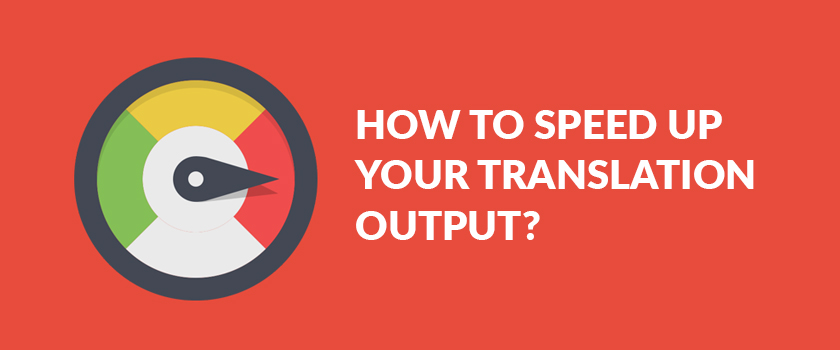For most translators, it is not easy to consistently maintain high-speed output while not compromising good quality. When translating, you may find yourself slowing your translation speed because:
1) diverting your attention by surfing on the Internet or chatting with friends;
2) not familiar with the subject of the source materials, so you have to do research to get some reference materials;
3) spend much time on searching for unknown terms in search engines like Google in order to get their proper translation;
4) have a trouble in translating certain long sentence with complex structure;
5) and more.
Now that you have known why you cannot fulfill your work efficiently, you can make corresponding measures to resolve these problems one by one:
1) Firstly close any unnecessary online chatting tools. Chatting will interrupt your thought process and you need a few minutes to reorganize your thoughts until you could continue your work. Secondly, never surfing on the Internet and browsing web pages unrelated to your work. Sometimes you do so just for relaxing yourself and just for several minutes (generally it is your original plan), so you don’t think it will impair your speed and efficiency. However, the fact is that in most cases you will spend much more time on surfing.
2) Make warm-up before translating. As a Chinese saying goes, sharpening your ax will not delay your job of cutting wood. Quickly read through or partially read the source text before you start to translate. In this way you will have an idea about what subject it talks about. For unfamiliar subjects, you can shorten the research process by using proper and appropriate keywords.
3) There are many useful tips that can help you use search engines more efficiently. Take E-C translation for example, you can use “English + Chinese keywords combination” to narrow the search range. For more details, you can refer to another two blogs “Tips on how to use search engine“ and “How to use search engines during translating”.
4) Whether you are able to deliver high quality translation depends on your knowledge, both in the source and the target language. If you are a newbie, don’t worry and you can do well as well. The way is simply making notes. Whenever you meet some difficult sentences, you can write them down along with their translation. When you meet similar sentences in the future, you can refer to your records without redoing researches or asking others for help. So you can save much time. Meanwhile, you can use them to create your own TM for reference.
In a word, “whole-hearted working” + “Making Warm-up” + “Using useful tips on how to use search engines” + “Making notes” can greatly help you speed up your output.
Read Also: Description Translation in Drug Instruction









